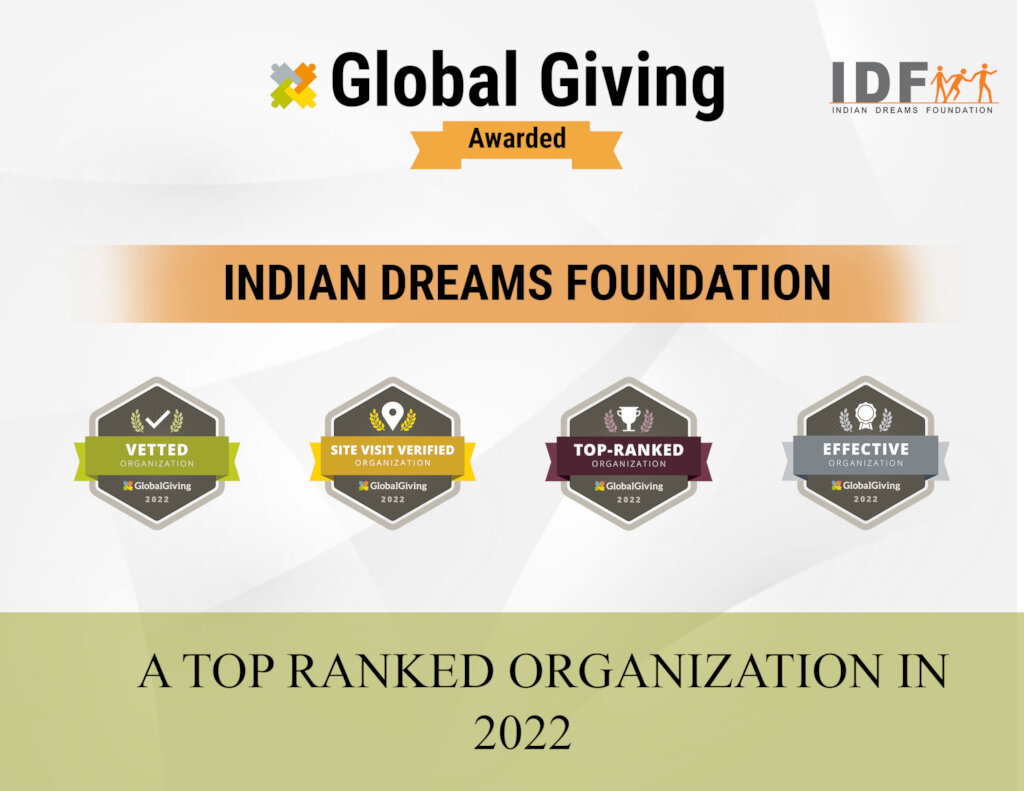![]()
Girls' right to education is being violated through inadequate menstrual hygiene education, insufficient water and sanitation facilities and poor access to sanitary menstrual materials. Menstrual hygiene facilities and services keep girls in the school to reach their full potential.
So far, we have registered approximately 800 girls and their mothers on the Smiley Days Programme. This number creates a significant member base for our campaign, and we hope to build on this in the coming months to attain our target of reaching out to 5000 girls and women in the local community. Since most of the beneficiaries are enrolled in schools, we direct our efforts towards partnering with these institutions on a wide range of events:
Awareness workshop
IDF team conducted health, hygiene and well-being awareness workshops regularly with Schoolgirls. Recently, our team has organized workshops in a girls' school in the rural pocket of Agra.
The majority of girls in rural communities use waste cloths to absorb menstrual blood because they cannot afford the cost of sanitary napkins. Furthermore, in some cases, they lack awareness of using them. While most girls were initially hesitant to speak about their experiences, they opened up to the IDF team through the Quiz Card activity. By allowing them to write their questions instead of asking out loud, we were able to get much more engagement and frankness in our discussion.
Informal activities: We have also organized a painting activity in different partners schools, where girls were asked to draw around the theme of 'Healthy and happy girl'. Through this fun-filled and relaxed activity, we hope to motivate girls to address their ideas on menstruation through the medium of art.
School Facilitators: Besides directly interacting with the students ourselves, we also believe that the roles of teachers are essential in providing the required psycho-social support for their students. Therefore we hope to train teachers (at least two female teachers) to provide this support to adolescent girls and organize regular hygiene motivation sessions, which will supplement the activities we undertake.
More than half of the school teachers said that they do not have sufficient knowledge of menstruation hygiene management (MHM) practices, and some had a basic idea about menstrual health & hygiene.
According to the information gathered from teachers, taboos, cultural beliefs, and silence on this issue are the primary sources of unawareness and lack of knowledge. Most schools do not integrate the MHM issue within their curricular activities. The situation is most apparent in co-education schools where girls and boys study together.
Renovation of toilets in schools
This time has been more crucial for IDF to spot the new toilets' construction locations and renovation for the old toilets in the schools for the girls. Under the WASH practices, we also stress the importance of school toilets built to accommodate menstruating girls' specific needs for privacy, space, washing facilities, correct disposal of menstrual pads, and installation of washbasins for healthy hand wash practices.
We have chosen/spotted those schools which do not have functioning toilets. Under the project, we also stress the importance of school toilets to accommodate menstruating girls' specific needs for privacy, space, washing facilities, and correct disposal or cleaning of menstrual pads.
However, separate toilets will give facilities and privacy to girls at the schools to change their sanitary pads/materials quickly and hygienically.
Other relevant activities:
Health kit distribution:
In addition to generating awareness about good menstrual health practices, we also believe that we must provide girls with the required utilities such as sanitary napkins. We are currently finalizing the purchase of these kits, which will be then distributed to the adolescent girls registered on the Smiley Days campaign. We will also be organizing the first health camp under this campaign in January 2017.
Community initiatives:
We also recognize that for a campaign to be truly successful, one needs to consider the local environment and the beneficiaries. We are, therefore, in the process of mapping 5-6 local communities to improve sanitation facilities; we are currently working on the toilet and washbasin construction in five schools and three households. We hope to create a long-term solution to hygiene issues in our target areas through such a building.
IDF has already organized various activities and is working towards meeting the objectives of our Smiley Days campaign. We hope to build on our existing model and reach all our metrics across education, provision of supplies, and engagement with stakeholders and communities in the forthcoming year.
Thank you so much for your continued support and motivation!
![]()
![Share on Twitter]()
![Share on Facebook]()


